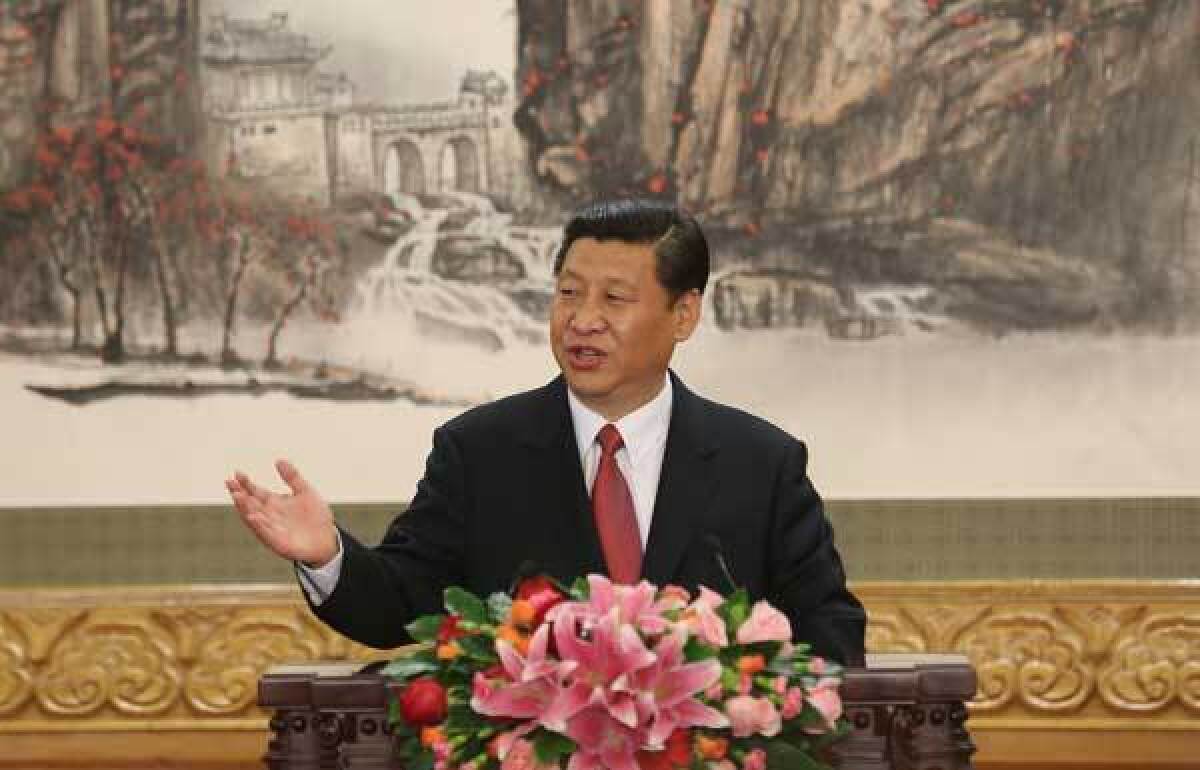China presents its new leadership

BEIJING -- Xi Jinping was named the Chinese Communist Partyâs new general secretary and chairman of the Central Military Commission on Thursday, giving him broad powers that could help consolidate his leadership from the start. He will become president early next year.
While Xiâs position as party head was long expected, his naming to the military commission marks a major break from the past.
Former Communist Party boss Jiang Zemin had served as the commissionâs chairman during outgoing President and General Secretary Hu Jintaoâs first five-year term. Jiang is said to have reemerged in recent months to influence the composition of the new Standing Committee of the Politburo, the most powerful governing body in China.
The 59-year-old Xi, son of a revolutionary hero, was introduced on stage at the Great Hall of the People in Beijing alongside the other members named to the Standing Committee:
-- Li Keqiang, 57, who is tabbed to be Chinaâs next premier after a meeting of the nationâs congress in March. Li speaks passable English and is believed to be a populist interested in easing Chinaâs wealth gap.
-- Wang Qishan, 64, one of Chinaâs most capable finance officials, was also named head of the Central Commission for Discipline Inspection to tackle corruption.
-- Yu Zhengsheng, 67, the current party chief of Shanghai, has remarkable ties to Chinaâs past leadership. Yuâs father was once married to Jiang Qing, who later wed Mao Tse-tung. Yuâs grand-uncle was defense minister for Nationalist leader Chiang Kai-shek.
-- Zhang Dejiang, 66, replaced the disgraced Bo Xilai as party secretary of Chongqing. He is considered a âprincelingâ because he is the son of a former Peopleâs Liberation Army general.
-- Liu Yunshan, 65, has been Chinaâs propaganda chief the last 10 years. He has guided Chinese state mediaâs massive expansion overseas and allegedly played a key role in driving Google out of China.
-- Zhang Gaoli, 66, an economist and former oil executive, recently oversaw the grand development of the northeastern port city of Tianjin.
Left off the Standing Committee were Liu Yandong, the fifth woman to ever join the Politburo, and Wang Yang, party chief of Guangdong and considered a progressive, if for nothing else than because he refuses to dye his hair jet black as is de rigueur among party cadres.
As expected, the Standing Committee was reduced from nine members to seven to promote consensus ruling.
ALSO:
Austerity measures are protested across Southern Europe
High-ranking Mexico police officer arrested in CIA attack case
Israelâs killing of Hamas military chief leaves Egypt in quandary
More to Read
Sign up for Essential California
The most important California stories and recommendations in your inbox every morning.
You may occasionally receive promotional content from the Los Angeles Times.











